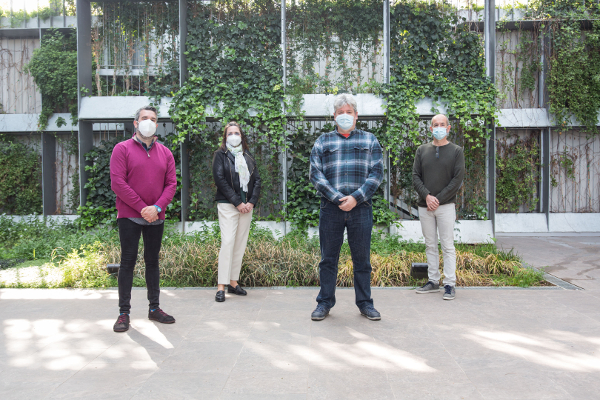The Ecophysiology and Biotechnology Group of the Universitat Jaume I will coordinate the OPTIMUS PRIME project, awarded within the PRIMA (Partnership for Research and Innovation in the Mediterranean Area) call, a European programme for the establishment of transnational consortia within the Mediterranean area for the development of research and innovation projects.
The project has a duration of three years and is coordinated by lecturer Vicent Arbona of the Department of Agricultural Sciences and Natural Environment of the UJI. It focuses on tomato as an important crop in the Mediterranean area, including numerous varieties with different morphological characteristics and culinary uses. Specifically, the aim is to address the difficulties that climate change can cause in the use of natural resources for agricultural production and that can also affect a higher incidence of highly harmful pests such as red spider mite or tomato moth, which causes so much damage to the tomato crop.
The OPTIMUS PRIME project, led by Vicent Arbona, is made up of a consortium of nine participants from Italy, Cyprus, Greece, Turkey, Morocco and Spain.
The project will be developed by a consortium made up of nine participants from six countries: Italy, Cyprus, Greece, Turkey, Morocco and Spain, including experts in plant physiology and biochemistry, agronomy and companies related to agricultural management and horticultural production. The UJI team will be made up of professors Aurelio Gómez Cadenas and Rosa M. Pérez Clemente, as well as the researcher Miguel González Guzmán from the Ramon y Cajal programme of excellence of the Spanish Ministry of Science and Innovation, and the project manager Vicent Arbona.
To deal with the effect of climate change, treatments will be developed based on natural products and microorganisms that provoke physiological and biochemical responses that contribute to greater plant tolerance to different environmental factors and pests. This process, known as “priming”, causes a series of changes in the plant that prepare it to better withstand any threat, such as sudden change in environmental growing conditions, drought, high temperatures or pest attack, without altering the genetic sequence of the plant or its agronomic characteristics.
In this way, the project will contribute to revealing the mechanisms that control the development of tolerance responses at a genetic and biochemical level and whether there is any kind of heritability in the traits acquired through the induction of epigenetic changes, for which the most advanced techniques for profiling gene expression and metabolites will be used. Thus, the project will take advantage of equipment that has been recently acquired that has been co-financed by the Generalitat Valenciana and the ERDF funds (IDIFEDER 2018/010- Action co-financed by the European Union through the operational program of the European Regional Development Fund (FEDER) of the Valencian Community 2014-2020).
Fuente: Universitat Jaume I
